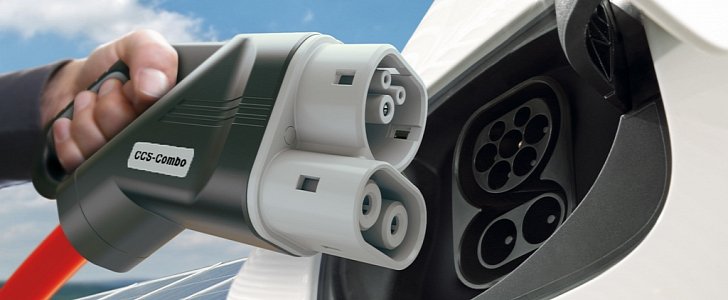There is a great rivalry between car companies, but it's all in good spirit, most of the time. Sure, one of them might have installed a defeat device that gave its diesel engines an unfair advantage, but it looks like all that is water under the bridge now.
What do we mean by "now"? Well, in case you haven't noticed, everybody is currently pushing for the development of electric vehicles, and the big manufacturers have somewhat been caught with their pants down. They've been in denial for a very long time claiming that downsizing the gas engines and sticking turbos on them while perpetually developing the diesels was the way forward.
Meanwhile, a young company in California thought different, and so in just a few years, it managed to build the world's arguably best EV and provide it with a super-fast charging network that covers almost the whole of the US. All while battling the opposition of the public, the media, and, later on, the traditional carmakers who were starting to feel a little threatened.
Yesterday, though, four of the most important names in the automotive industry - BMW Group, Daimler AG, Ford, and VW Group - have announced the signing of a Memorandum of Understanding to build the highest-powered charging network in Europe. That, together with the recent announcements for numerous EVs over the coming years, shows they have finally decided to join Tesla, instead of trying to ridicule its efforts.
This "unprecedented collaboration" is planned to start next year with a target of 400 sites scattered across the continent's main highways. By 2020, thousands of them are expected to pop up, enabling electric long-distance traveling and reducing charging time dramatically.
The technical specifications are limited at this time, but Daimler did say it will be based on the current Combined Charging System (CCS) technology and it will provide power levels up to 350 kWh. There are no cars that can currently benefit from this much power (Teslas can suck up to 120 kWh from the Supercharger network), but expect future offerings from these brands (and others) to take full advantage.
Of course, this also good news for Tesla as well as it won't be forced to invest in expanding its Supercharger network on the Old Continent anymore - assuming its cars will come with an adaptor - to offer its clients the promised ability to long-distance travel. On the other hand, it will also be losing one of its main selling points against competition, so it's not all milk and honey.
Meanwhile, a young company in California thought different, and so in just a few years, it managed to build the world's arguably best EV and provide it with a super-fast charging network that covers almost the whole of the US. All while battling the opposition of the public, the media, and, later on, the traditional carmakers who were starting to feel a little threatened.
Yesterday, though, four of the most important names in the automotive industry - BMW Group, Daimler AG, Ford, and VW Group - have announced the signing of a Memorandum of Understanding to build the highest-powered charging network in Europe. That, together with the recent announcements for numerous EVs over the coming years, shows they have finally decided to join Tesla, instead of trying to ridicule its efforts.
This "unprecedented collaboration" is planned to start next year with a target of 400 sites scattered across the continent's main highways. By 2020, thousands of them are expected to pop up, enabling electric long-distance traveling and reducing charging time dramatically.
The technical specifications are limited at this time, but Daimler did say it will be based on the current Combined Charging System (CCS) technology and it will provide power levels up to 350 kWh. There are no cars that can currently benefit from this much power (Teslas can suck up to 120 kWh from the Supercharger network), but expect future offerings from these brands (and others) to take full advantage.
Of course, this also good news for Tesla as well as it won't be forced to invest in expanding its Supercharger network on the Old Continent anymore - assuming its cars will come with an adaptor - to offer its clients the promised ability to long-distance travel. On the other hand, it will also be losing one of its main selling points against competition, so it's not all milk and honey.





















